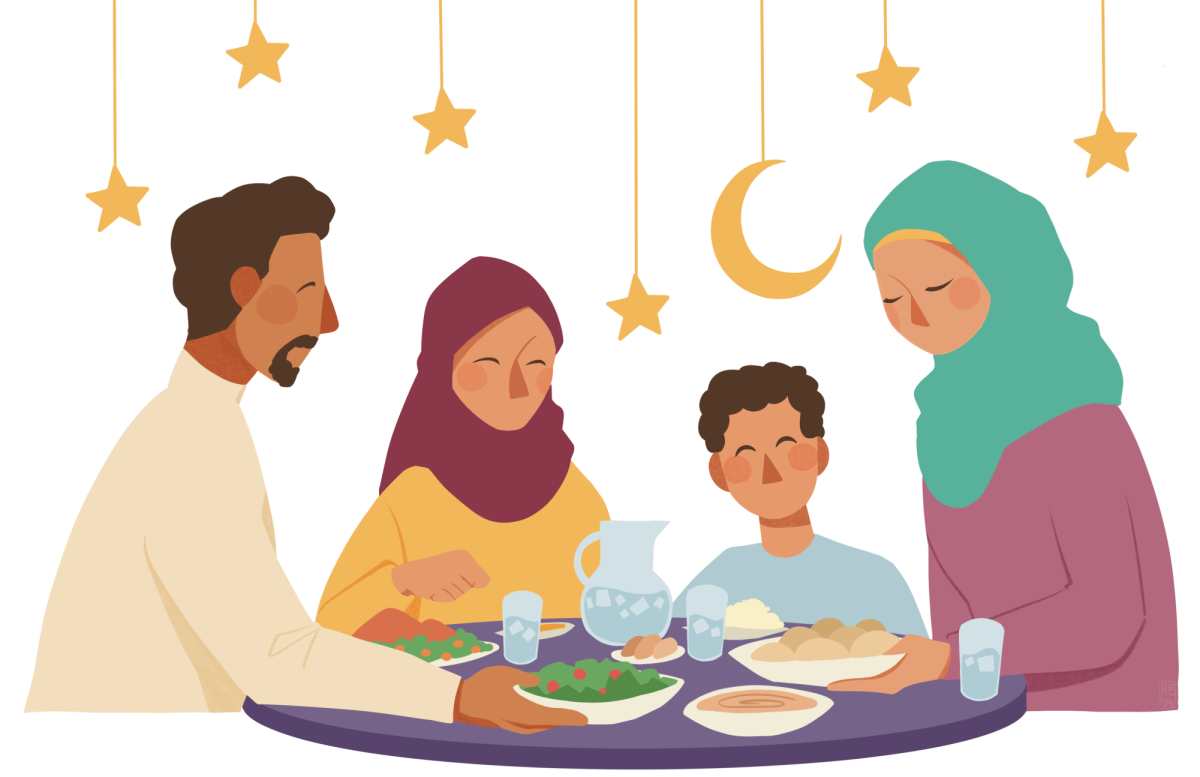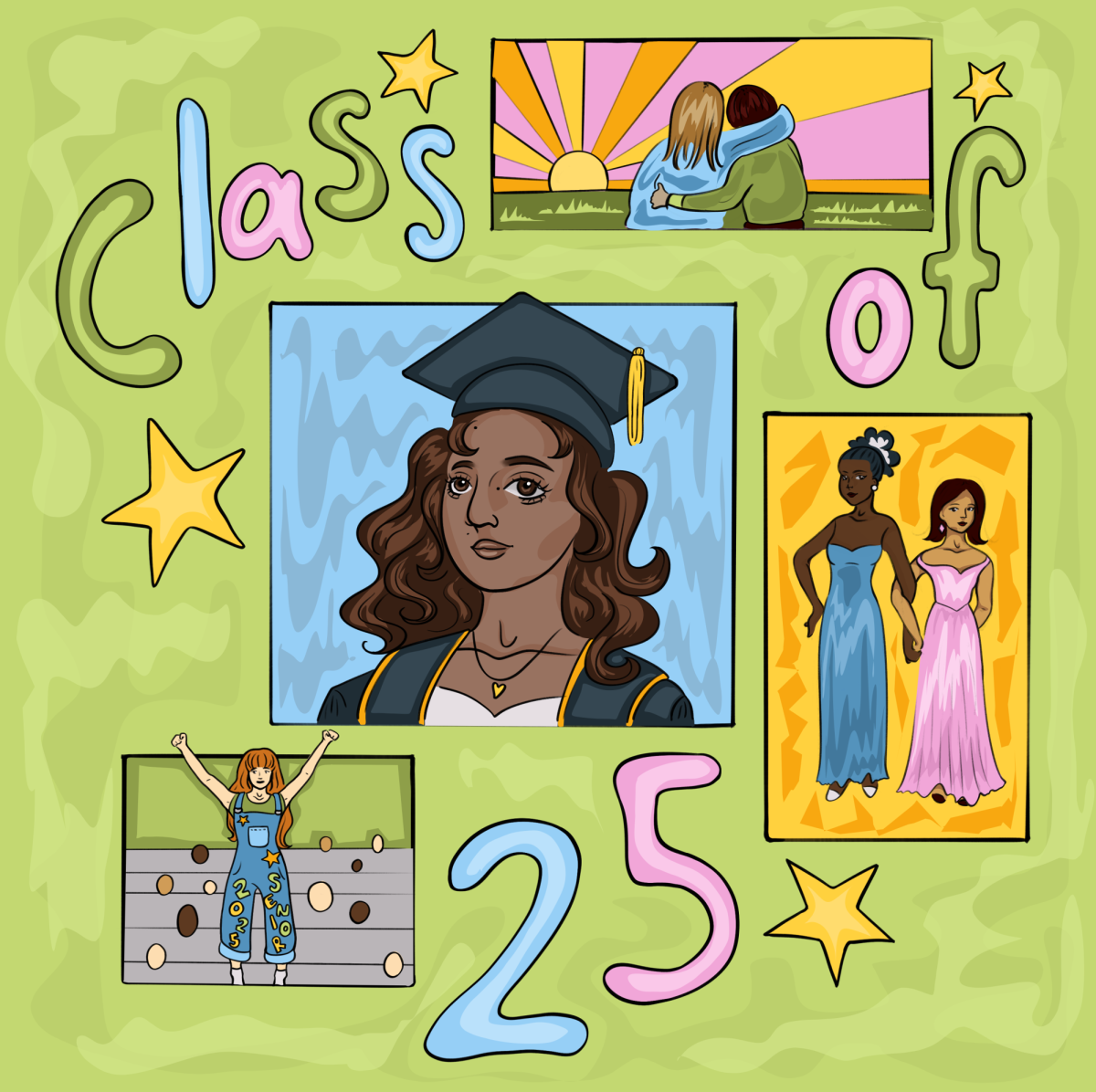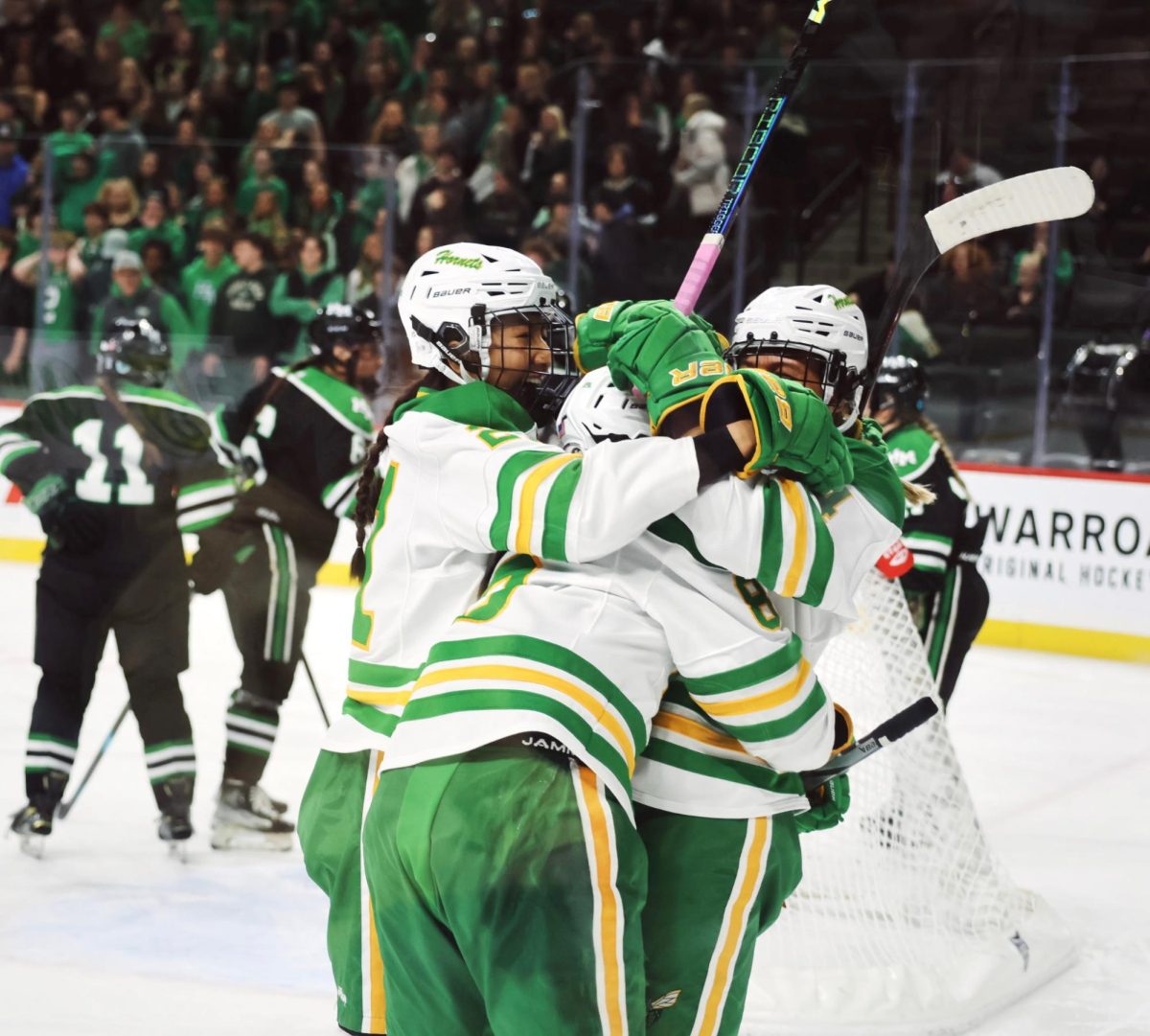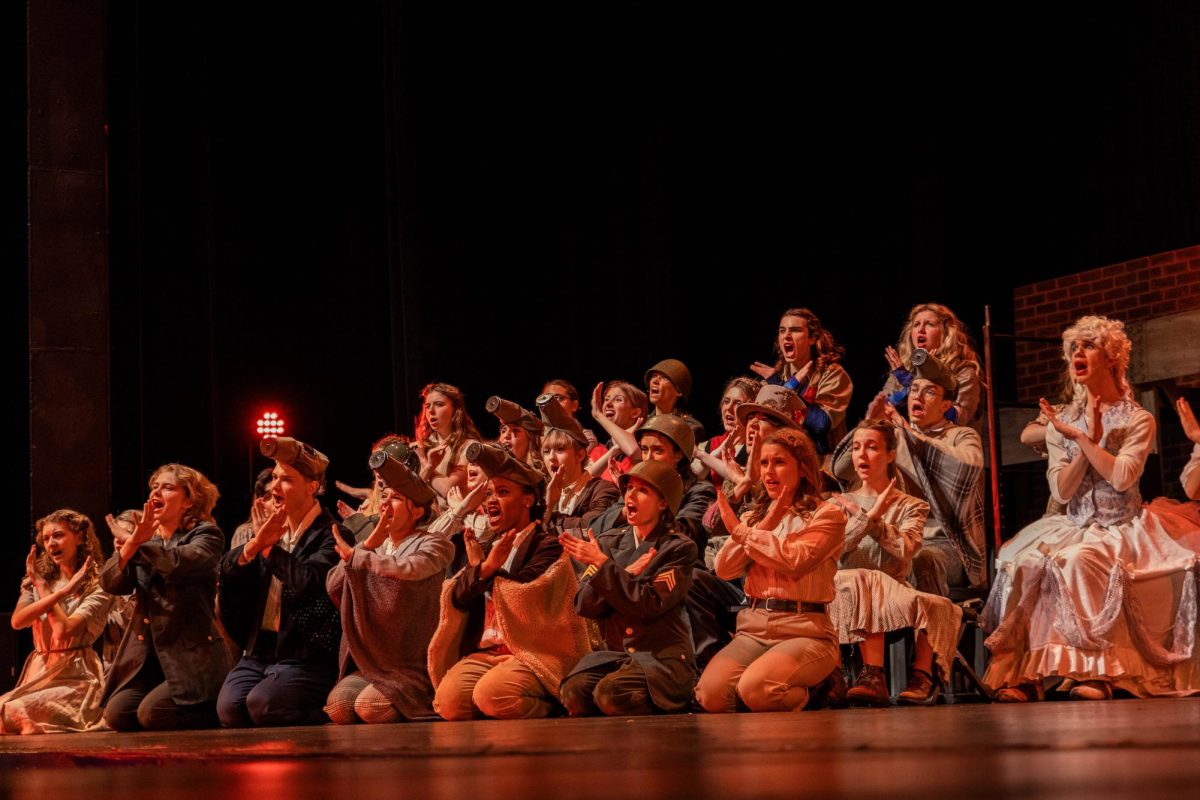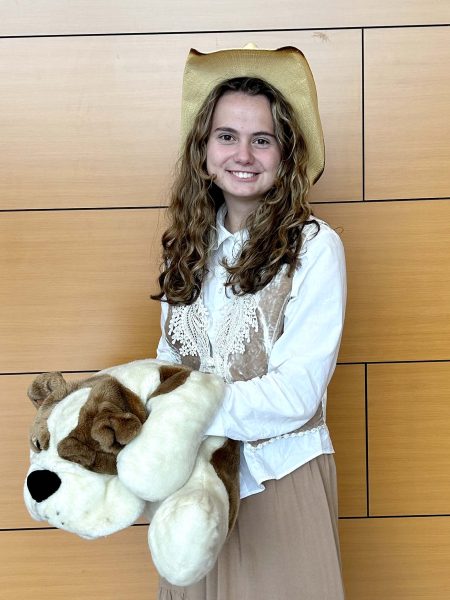On March 10, the appearance of the crescent moon marked the start of Ramadan, a 29-30-day commemoration of the month in which the Quran, the Islamic holy book, was sent down from heaven. As a time for Muslims to grow closer to Allah, hundreds of Muslim Edina High School students observe the month by fasting, abstaining from negative behaviors like swearing or lying, and praying five times throughout the day, among other actions.
When celebrating Ramadan with her family, Muslim Student Association President and junior Ahlam Saleh decorates the interior of her home with various moon and star-shaped trinkets. “Before Ramadan starts, we order some [decorations] off of Amazon, and then we have a staircase that we wrap lights or [put] random themed banners around the stairs,” Saleh said.
One of the main pillars of observing Ramadan is fasting, or sawm. Muslims cannot eat food or drink water from sunrise to sunset (within the Shia sect, Muslims will not open or break their fast until the sun is completely out or until the sky is fully dark), with exceptions made for pregnant women, the terminally ill, or others generally unable to fast.
Many Muslims have observed the holy month since puberty, as is traditional. “We break our fast with dates because that’s what we do. Then for what we eat before sunrise, it’s stuff that keeps us energized, so a lot of protein,” junior Lina Isufi said. “I usually eat avocado on toast because I love avocado on toast and [I’ll] drink a little water.”
Both Isufi and sophomore Norulliman Shariff agree that fasting 12 hours a day is manageable for them.
“I feel like it’s pretty easy if you’re willing to make the sacrifices necessary,” Shariff said. “I feel like it’s not just for the one month—you’re supposed to do it for in general for our culture. So I feel like during the month before Ramadan, if you start getting into that routine, I feel like it makes it easier to adapt to Ramadan.”
To accommodate students celebrating the month, Edina Public Schools alerted teachers and staff of the basic tenets of the holy month. EPS also emailed parents locations where their students could go to pray or take breaks during lunch throughout the school day. Muslim students observing Ramadan received prayer passes to allow them to complete their five daily prayers.
“[They’re available] if they just want to [take a break] because when you’re fasting, you don’t want to be around food,” security guard Ismahan Abikar said. “You just want to have a quiet space to maybe just rest for those 20 minutes, take a good nap.”
“I feel like that that really helps us pray efficiently, more quick[ly], and it speeds up the process,” Sophomore Zuber Abdullahi said. “Teachers don’t really know why we’re gone for so long; I feel like some of them just don’t even want to believe us.”
While Abdullahi sometimes feels his teachers don’t fully understand Ramadan, Saleh is content with the way her teachers recognize the month, save wanting less homework due to being more tired than normal. “Other than that, it’s perfect. Teachers say ‘Ramadan Kareem’, ‘Ramadan Mubarak’, ‘Happy Ramadan’, and that makes me feel really happy,” Saleh said.
Once the time for the night prayer, or the Tarawih, comes, Saleh meets with friends and family at a mosque to pray, enjoying food and treats afterward. However, unlike Isufi and Shariff, the several-hour wait can be difficult for her.
“I feel like it’s kind of hard because you have to cut [eating] off as soon as it hits Ramadan,” Saleh said. “[Ramadan] just changes you as a person because growing habits, it takes about 30 days, and those 30 days during Ramadan are the perfect time to change those habits.”
The holy month ends with Eid al-Fitr, a multiple-day commemoration of Ramadan where families gather to share meals, pray together, and give each other presents, among other ways to celebrate.
“I feel like people need to understand this more than not drinking water and eating food. It’s more [about] faith and getting closer with God,” Shariff said. “You put all the stress to work to school, everything to decide you just enjoy this moment with your family. You never know how much more you have left. You never know if you’ll make it to the next Ramadan.”
This piece was originally published in Zephyrus’ print edition on April 18, 2024

